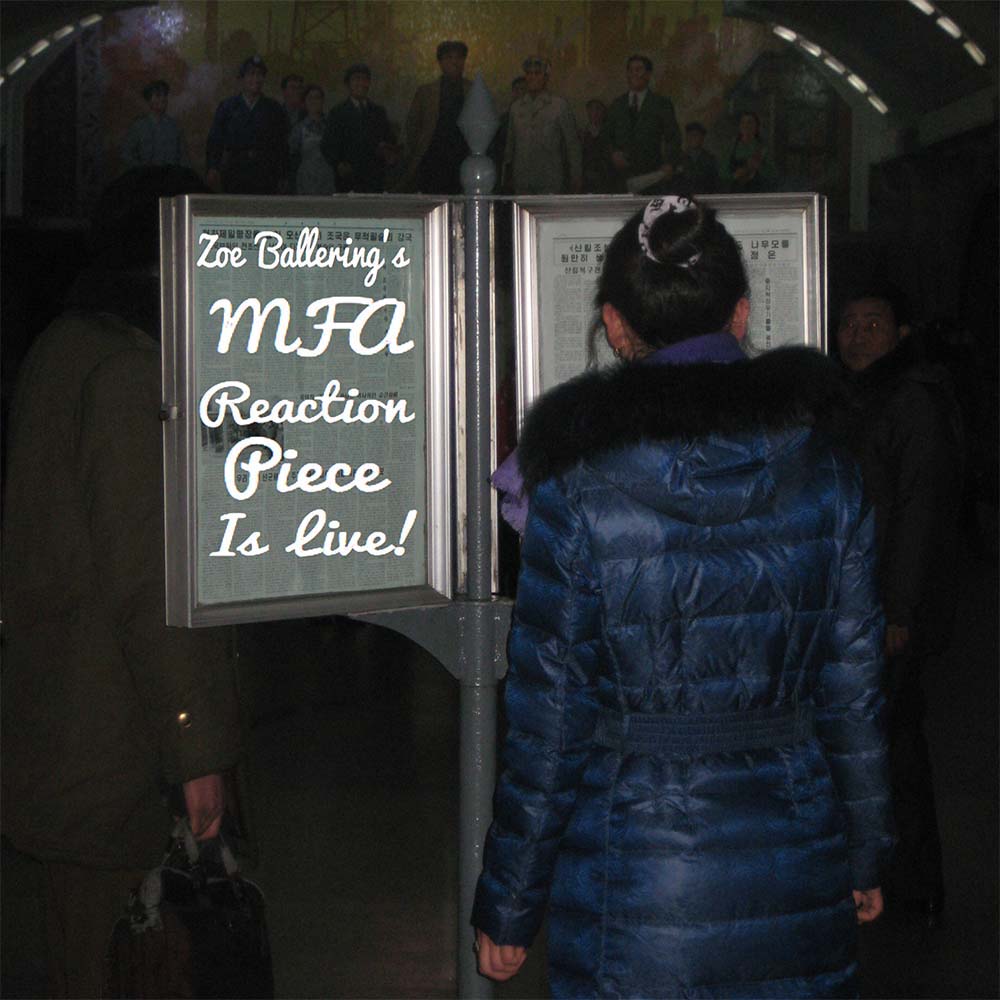I applied to graduate school because I was tired of living in a town of 10,000 located on a peninsula attached to another peninsula. The median age was 53. I was 27, sexless and bored. I was also a fairly good writer. Given that I upended my life mostly for the sake of sex, take my advice with a grain of salt, or—better yet—with a whole Himalayan salt plate, the kind I used to sell at a different, better job. It turns out that being shy and awkward anywhere, whether I’m surrounded by 10,000 grayheads or 10,000 vicenarian hipsters, has seriously hampered my coital pursuits. The sex part hasn’t really panned out, but I have wound up reading a lot of books, teaching a lot of undergraduates, and—occasionally—writing. I spent my first quarter of graduate school trying to decipher Derrida in a building that was basically a Cold War bunker. I’m happy that I ended up in a program with a large critical component, but I will say this: the “creative” aspect of my MFA is a very small slice of what I do. I take two classes each quarter—one critical, one creative—as well as teaching English 101 to a gaggle of doe-eyed, deeply confused freshmen. I believe that I am becoming a zanier, more thoughtful writer simply through newness and exposure—through teaching for the first time, reading new things, and befriending word-loving strangers. But I’ve also come to believe that getting an MFA is like taking calcium supplements to ward off osteoporosis in my eighties. The effect is not immediate; I won’t be able to tell if all this has worked until significantly after the fact. And what does it even mean for things to work, anyway? Certainly I hoped that my summer job might involve an internship at a publishing press, not helping an elderly woman toss a bag of spoiled fish over a railing and into a pit filled with garbage. I advise never paying for an MFA, but I also advise never expecting any remunerative benefit. At the moment, I feel more confident determining how much someone should pay for trashing a toilet than I feel about my ability to make my name through writing. But as bitter and biting as I like to sound, it has been worth it. It has been worth it because it is better to cherish a sliver of creativity among other writers than to cherish a sliver alone. The program that I am in has none of the qualities, real or imagined, of the programs I’ve read about in blogs and newspapers and novels. No one is turning me into an MFA automaton, churning out the same, overworkshopped pabulum as everyone else. The writers who surround me are not cutthroat. If we’re competitive, it’s in a pleasant, patient kind of way—we’re the sort of people who have fierce standoffs at four-way stops, beckoning other drivers to go first. Still, we are honest with each other. Still, we can see things in a piece of writing that the writer cannot see alone. Among my cohort, I like some writers better than others; among the faculty, I like some teachers better than others. As far as I can tell, getting an MFA is not so different from getting an undergraduate degree or getting a job—a great mass of mundanity that informs and battles with and makes possible a tiny sliver of creativity. If you have a good enough reason or can pretend you have a good enough reason, if you have the privilege or can bear the burden of making very little money for two years, if you can tolerate the stress of newness and the sting of failure, then why not try? One of the perks is that in the midst of MFAing, every pratfall begins to hold the seed of narrative, so that as I sniffed myself woefully and smelled spoiled fish, I thought, “This will make a good story.” Of course, this is one of the perks of life in general, not just MFA programs. So trash everything I’ve said (I can quote you a price for disposal, if you’d like). Just go for the sex and do a better job than I have done.  Zoe Ballering is in the midst of completing her MFA at Western Washington University in Bellingham, Washington. She's currently working on her thesis, a collection of short stories of speculative fiction dealing with themes of pain, grief, and the body—and naked mole rats, of course. Her piece 'Your Mother, A Mole Rat' appeared in NUNUM's Summer Issue.
0 Comments
Your comment will be posted after it is approved.
Leave a Reply. |
AuthorNUNUM Archives
July 2024
Categories |



 RSS Feed
RSS Feed